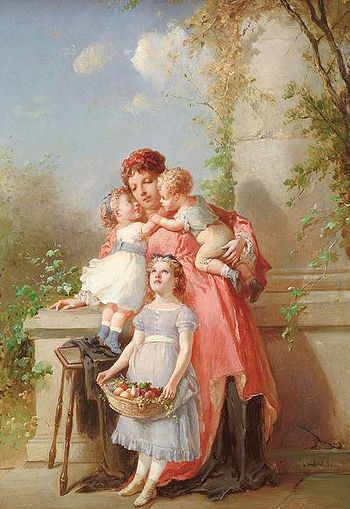When Solomon succeeded David as king of Israel, he asked God for wisdom to rule the nation. Solomon’s humility pleased God, and by God’s beneficent endowment his request was granted.
And God said unto him, Because you have asked this thing [for wisdom] and have not asked for yourself long life; neither have asked riches for yourself, nor have asked the life of your enemies; but have asked for yourself understanding to discern judgment; Behold, I have done according to your words: I have given you a wise and an understanding heart; so that there was none like you before, neither after you shall any arise like you (I Kings 3:11-12).
Solomon’s stunning wisdom, stirred within him a “consuming passion” for knowledge, and “he became the literary prodigy of the world of his day.”[1] He is credited with composing three thousand proverbs (I Kings 4:32) and being the principal writer of the book of Proverbs.
Wisdom literature
Solomon wrote three of the five books of biblical wisdom literature: Proverbs, Ecclesiastes and Song of Solomon. The authors of wisdom literature write about how life works: how to tell good from evil, how to know God, how to live harmoniously with others, how to choose a right path, and how to recover from mistakes, along with many other human interest topics.
In writing Proverbs, Solomon started with a purpose: “to know…to perceive…and to receive the instruction of wisdom” (1:2-3) in order to live righteously, securely and free from fear (1:33). He arranged his sayings in the form of guidance for his son. Was he thinking of his son Rehoboam at the time? Or did he intend a larger audience when he began? I don’t know. Either way, his theme of fatherly advice is appropriate for imparting wisdom.
One study Bible notes that “Proverbs is probably the most down-to-earth book in the Bible. Its education prepares you for the street and the marketplace… it offers the warm advice you get by growing up in a good family: practical guidance for successfully making your way in the world.”[2]
I do wonder about the commentator’s statement “it offers the warm advice you get by growing up in a good family.” In my mind, warm advice involves conversation, questions, give-and-take discussion, and that is not the style Solomon chose for Proverbs. Each generation is taxed with teaching proverbs as warm advice, contemporary and engaging.
In the first nine chapters of Proverbs, Solomon stressed the importance of his own words and that his son would do well to heed them (5:1). Then moving away from himself, Solomon personified Wisdom using the feminine pronouns “she” and “her.” He likened Wisdom to a feminine presence that existed from creation, a mysterious “woman” who possesses the qualities of care, concern, love, and benevolence, and who appears and disappears in the narrative—as it suited him.
Ancient Wisdom
Solomon pictured Wisdom as having lived from ancient times.
The LORD possessed me at the beginning of His way, before His works of old. I have been established from everlasting, from the beginning, before there was ever an earth (8:22-23).
Solomon depicted Wisdom as having an interest in mankind since the time God populated the earth …rejoicing in His inhabited world, and my delight was with the sons of men (8:31).
Solomon represented Wisdom as worthy to heed: Now therefore, listen to me, my children, for blessed are those who keep my ways (8:32).
Caring Wisdom
Mom, you’ve got to come…I’m…
How many times have I been there for him? Have I gone when he was in trouble? He’s so edgy, with the wrong crowd, drifting, not hearing what I say. I’ve told him to break with those friends, but he hates to hear the truth. So brash and naïve, he’s ruining his life and doesn’t see the consequences. He thinks I’ll always be there to bail him out. Sometime I won’t be there…I’ll be gone…gone from him (1:20-33; 8:1-11).
I’ve greatly paraphrased Solomon’s picture of Wisdom’s concerned efforts for her children. Chapters 1 and 8 bring to my mind a mother watching, praying and waiting as her grown child moves further from her sphere of influence. Doesn’t every mother know there will be joy and sorrow when children leave home? Solomon portrays a particular, motherly grief when a child suffers from bad decisions.
They would have none of my counsel and despised my every rebuke. Therefore they shall eat the fruit of their own way, and be filled to the full with their own fancies. For the turning away of the simple will slay them (1:30-32).
Most youthful missteps are not fatal, thankfully. Many sons and daughters, momentarily errant, eventually “see the light” and return to safe ground. This is so beautifully illustrated in the parable of the prodigal son. The father rejoiced when his son returned home, a humbler, wiser man.
Wisdom Rejoices
Like the prodigal’s elated father, Wisdom’s joy overflows when children turn to her.
I love those who love me, and those who seek me diligently will find me…that I may cause those who love me to inherit wealth, that I may fill their treasuries (8:17, 21).
Solomon connected wisdom with generosity, abundance and riches (9:1-6). He portrayed Wisdom welcoming her child after a troublesome absence. She’s made everything ready—the fatted calf, fine wines and bread, important guests—and everyone gathers to celebrate the one who has chosen to “forsake foolishness and live” (9:6).
Reflections
After thinking about Proverbs 1:20-33 and 8:1-11, I wonder if Solomon taught his son in a one-on-one manner? Did he have a favored son or daughter that received his personal attention? As a royal father, did he make time sit down with them and explain how life works? If tutors educated the king’s children, and mothers imparted wisdom and integrity, it might explain why Solomon pictured the sadness and the joy of Wisdom as a woman.—Mary Hendren
[1] Halley’s Bible Handbook, Edition 23, p. 269
[2] The New Student Bible, NIV, Zondervan (1986), p. 568

